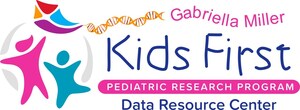PHILADELPHIA, Nov. 2, 2023 /PRNewswire/ -- The NIH Common Fund's Gabriella Miller Kids First Pediatric Research Program (Kids First) and the INCLUDE Project (INvestigation of Co-occurring conditions across the Lifespan to Understand Down syndromE), announce the release of a robust, new cross-condition research dataset spanning Down syndrome (DS), leukemia, and heart defects. Kids First and INCLUDE are working to help researchers uncover new insights into the biology of childhood cancer, congenital disorders and DS, including the discovery of shared genetic pathways between these disorders.
Now available on Kids First Data Resource Portal and INCLUDE Data Hub, the rich multi-modal data overlaps both National Institutes of Health (NIH) programs as part of a continuing partnership and aligned vision.
The Kids First Data Resource Portal houses a collection of raw data from multiple sources that has been normalized so that a valid comparison can be made across these sources from participants diagnosed with pediatric cancer and congenital disorders. At the same time, the INCLUDE Data Hub provides data on DS across the lifespan. Connecting researchers to these data portals creates opportunities to develop treatments and cures that would be nearly impossible if pursued by a single research program.
Principal investigators Dr. Stephanie Sherman from Emory University and Dr. Philip Lupo from Baylor College of Medicine partnered with the Crnic Institute Human Trisome Project (HTP) led by Dr. Joaquin Espinosa at the University of Colorado and the Pediatric Cardiac Genomics Consortium (PCGC) to develop this unique dataset that includes participants diagnosed with both cancer and congenital disorders. This collaboration has created a powerful opportunity for research analysis to identify the underlying causes of these different conditions.
This data release represents one of the largest ever on the Kids First Portal or INCLUDE Data Hub, containing over 16,000 files totaling 64TB of rich multi-modal data from over 2,800 participants with DS. Now, this data is available at no charge for general research use on the Kids First Data Resource Portal and the INCLUDE Data Hub.
Scientists have already begun to apply this new data set in their research projects. For example, authors of one study using these data identified that B-cell acute lymphoblastic leukemia (B-ALL) in individuals with DS has different genetic features than B-ALL in those without DS, which has the potential to lead to better, more targeted therapies for all patients.
An aspect of the innovative Kids First and INCLUDE programs is understanding the interplay between congenital disorders and childhood cancer as well as DS and co-occurring conditions, which can be elucidated from analysis of these datasets. Kids First and INCLUDE empower researchers to find the answers within these genomic datasets faster than ever so children have better medical treatments in the future.
Learn more about the Kids First program here. Register to access the Kids First Portal here. To access the INCLUDE Portal, click here.
About the Gabriella Miller Kids First Data Resource Center
As an initiative of the NIH Common Fund's Gabriella Miller Kids First Pediatric Research Program, the Kids First Data Resource Center (Kids First DRC) is a collaborative pediatric research effort to understand the genetic causes and links between childhood cancer and structural birth defects. The Kids First DRC's expert doctors, scientists, and researchers work together with patient families to understand the underlying causes of these diseases in children on a biological level and to ultimately support the development of improved and targeted treatments. Learn more at kidsfirstdrc.org.
About the INCLUDE (Investigation of Co-occurring conditions across the Lifespan to Understand Down syndromE) Project
The INCLUDE Project, launched by the National Institutes of Health (NIH) in 2018, aims to enhance our understanding of health and quality-of-life needs for people with Down syndrome by addressing co-occurring conditions—such as Alzheimer's disease, autism, leukemia, and congenital heart defects—that are more common in those with the syndrome. Since then, this NIH-wide project has invested more than $258 million in 269 projects on basic science and clinical studies, and trials focused on Down syndrome. The INCLUDE Project involves many of the 27 component Institutes and Centers of NIH, the nation's leading medical research agency within the U.S. Department of Health and Human Services. To learn more about INCLUDE, visit nih.gov/include-project.
Contact
Whitney Rife
Center for Data Driven Discovery in Biomedicine
Phone: 609.947.6809
Email: [email protected]
SOURCE Gabriella Miller Kids First Data Resource Center





Share this article